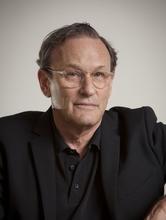Jeffrey Alexander recently wrote this short commentary for a compilation of remarks written by various experts, All Great Minds Think for Themselves, for the Social Trends Institute.
“Over the last three decades, I have developed, with colleagues and students, a sociological approach to democracy and social justice that I call civil sphere theory. The civil sphere is one part of our present day societies, the part that orients itself to a universal solidarity that intertwines the commitment to individual autonomy with communal obligation. Real (as compared to ideal) civil spheres are always comprised by pressures from two sources: (1) The founding core groups of societies that define certain primordial qualities (race, religion, ethnicity, science, and gender) as “more civil” than others; and (2) The pressures and demands of the “non-civil” spheres that border the civil sphere - spheres that represent other kinds of justice and pay homage to different kinds of values (like the economy, the state, the family, and religion).
In the global pandemic we’re all experiencing, our civil spheres are being tested. If they are found wanting, future possibilities for democracy and justice will narrow; if they can rise to the occasion, some of the fragmentations that undermine contemporary civil spheres can be repaired, and the future will provide better opportunities for justice and democracy.
What are such current tensions? Probably the most obvious is the tension between individual interest and social whole. As our societies organize to protect against the virus, leaders ask people to curtail their freedom, whether or not they themselves are currently at risk. Even people without symptoms can pass the virus to others. Self-interest often seems to strain against such requisite social virtue. People want to take risks, even with their own health; they are tempted to become free riders, betting on the virtue of others to protect themselves.
The other challenge to civil spheres under the shadow of the Coronavirus occurs at the boundaries of the civil sphere. It is difficult for the leaders who organize non-civil values and organizations – and the enthusiasts who participate in them – to curtail their plural pursuits in order to sustain the social whole. Stores and corporations want to stay open. So do schools and churches. Finally, there is the fate of those excluded from the civil sphere, the poor, the homeless, the undocumented. Can feelings of solidarity be extended to people who are usually so stigmatized?
If our civil spheres can rise to these challenges, social solidarity will be strengthened, not only today but for decades to come.”
